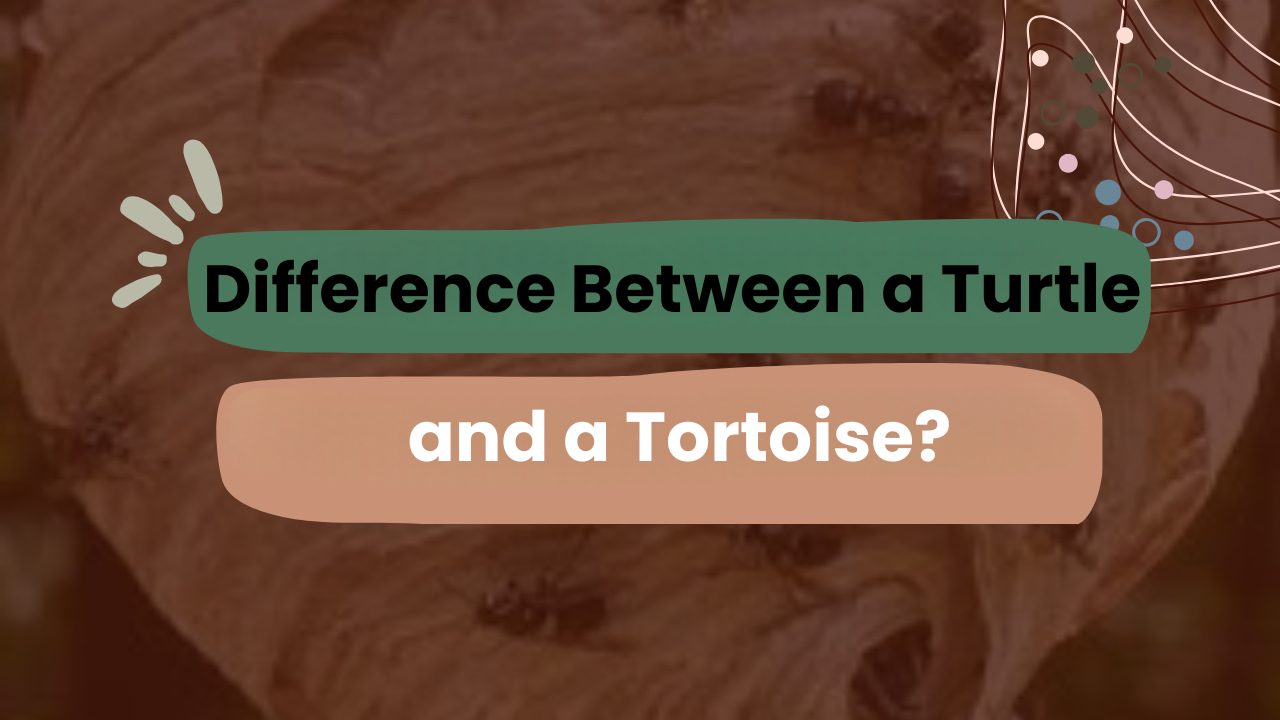Turtles and tortoises might look pretty similar at first glance, but they’re actually quite different. Both are reptiles with hard shells, and they both belong to the same family called Testudines. Still, they live in different environments and have their own unique features.
Discover the key differences Between a Turtle and a Tortoise including their habitat, shell shape, diet, and lifespan. Learn how to tell them apart easily in this beginner-friendly guide.
Table of Contents
The Quick Answer
The main difference is simple:
- Turtles live in water (or near it)
- Tortoises live on land
Let’s break down more of their differences in detail.
Where They Live
Turtles are usually found in lakes, rivers, or oceans. They spend most of their lives in or around water. They’re great swimmers and need water to survive.
Tortoises live entirely on land. They don’t swim like turtles do and prefer dry environments like deserts, grasslands, and forests.
Shell Shape
Their shells give away a lot:
- Turtles have flatter, smoother, and more streamlined shells to help them glide through water
- Tortoises have dome-shaped, heavier shells that are built more for protection than speed
Legs and Feet
Their legs are adapted for their environment:
- Turtles have webbed feet or flipper-like limbs for swimming
- Tortoises have thick, stumpy legs that help them walk on rough terrain
Tortoises kind of walk like little elephants with a slow, steady pace. Turtles are much quicker in the water.
Diet
While both are generally herbivores or omnivores, their diets can be slightly different.
- Turtles often eat plants, insects, fish, and algae
- Tortoises mostly eat grasses, fruits, flowers, and leafy greens
Some turtle species are more carnivorous, especially in the wild.
Lifespan
Tortoises are known for living very long lives. Some can live over 100 years. The famous Galápagos tortoise is a great example.
Turtles live long too, but usually not as long. Depending on the species, a turtle might live 20 to 80 years.
Can You Keep Them as Pets?
Yes, but they have different care needs:
- Turtles need a tank with clean water, a dry spot for basking, and special lighting
- Tortoises need a warm, dry habitat, lots of floor space, and regular time outdoors
Always research the species you’re getting, because their care varies a lot.
Fun Facts
- The word “turtle” is often used differently around the world. In the US, “turtle” usually means all shelled reptiles. In the UK, “turtle” refers to sea turtles, and “terrapin” is used for freshwater types.
- Tortoises can’t swim. They can drown if they fall into deep water.
- Sea turtles travel thousands of miles across oceans to lay eggs on the same beach where they were born.
Summary Table: Turtle vs Tortoise
| Feature | Turtle | Tortoise |
|---|---|---|
| Habitat | Water (fresh or saltwater) | Land only |
| Shell Shape | Flat, smooth, light | Dome-shaped, heavy |
| Feet | Webbed or flipper-like | Thick, stumpy |
| Swimming | Yes, excellent swimmers | No, cannot swim |
| Diet | Omnivores (plants, fish, etc.) | Mostly herbivores |
| Lifespan | 20 to 80 years | Often 80 to 150+ years |
Final Thoughts
Turtles and tortoises are cool in their own ways, but knowing the difference helps you understand them better and take care of them properly if you ever have one as a pet.
In short: turtles love water, tortoises love land. Their shells, legs, and habits are shaped by where they live and what they do.
Want to know how to tell them apart in the wild? I can help with that too. Just ask!

